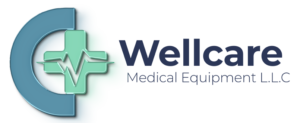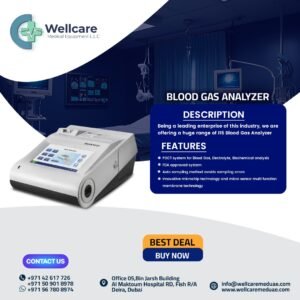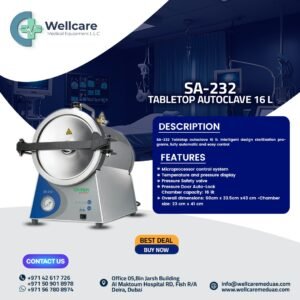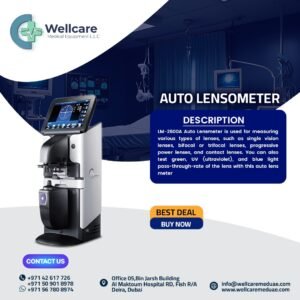Medical consumables and instruments are foundational to the healthcare industry, ensuring that providers can deliver safe, effective, and high-quality care. These items range from single-use supplies such as gloves, syringes, and wound dressings to complex reusable instruments like surgical tools, diagnostic equipment, and imaging devices. Each plays a crucial role in patient treatment, from basic hygiene and infection prevention to advanced diagnostics and life-saving interventions. Their relevance spans across all healthcare settings, including hospitals, clinics, laboratories, and specialized medical centers, highlighting their indispensable role in the medical field.
1. Critical for Infection Control and Hygiene
Consumables like gloves, masks, gowns, and disinfectant wipes are essential in preventing the spread of infections within healthcare settings. They help establish and maintain sterile environments during procedures and routine patient care. For example, gloves and gowns provide a physical barrier that protects both patients and healthcare workers from potential contaminants. This is particularly vital in hospitals and surgical centers, where the risk of infection is higher. By using sterile, disposable consumables, healthcare providers can minimize the transmission of infectious diseases, contributing to safer patient care and a healthier environment overall.
2. Support for Diagnosis and Monitoring
Diagnostic consumables and instruments, such as syringes, blood collection tubes, test strips, stethoscopes, and blood pressure monitors, enable healthcare providers to assess patients’ health accurately. For instance, syringes and needles are used to collect blood samples or administer medications, while stethoscopes and blood pressure monitors allow for continuous patient monitoring. Diagnostic tools also include more advanced consumables and equipment, such as ECG leads and ultrasound gel, which support non-invasive diagnostic imaging and testing. These tools are essential for accurately diagnosing conditions, tracking patient progress, and making informed treatment decisions.
3. Facilitating Effective and Safe Treatments
Medical consumables and instruments play a pivotal role in administering treatments and performing surgical procedures. In surgery, for example, items like sterile drapes, scalpels, forceps, and sutures are indispensable for creating a safe operative field, performing precise incisions, and closing wounds. Other consumables, such as IV bags, tubing, and catheters, are essential for delivering medications, fluids, and other treatments to patients. Instruments like defibrillators and ventilators are crucial in emergency and intensive care situations, where rapid, effective responses are needed to stabilize patients. The availability of these specialized tools supports a wide range of medical treatments, from minor outpatient procedures to complex surgeries.
4. Enabling Specialized Fields of Care
Beyond general healthcare, consumables and instruments are tailored for various medical specialties, allowing for precision and effectiveness in specialized care fields. For example, cardiology requires unique consumables like cardiac catheters and ECG electrodes, along with specialized instruments for monitoring and treating heart conditions. In orthopedics, bone saws, screws, and casting materials are used to treat fractures and joint issues. Gynecology and obstetrics rely on instruments like speculums and fetal monitors, as well as test kits and ultrasound gel, to provide women’s health services. Each specialty demands its own set of tools and consumables, allowing healthcare providers to offer specialized, high-quality care for specific patient needs.
5. Supporting Emergency and Critical Care
In emergency situations, the immediate availability of medical consumables and instruments can be life-saving. Items such as wound dressings, oxygen masks, defibrillator pads, and suction catheters enable rapid response to trauma, cardiac events, and respiratory issues. Emergency rooms and intensive care units rely on these supplies to stabilize patients, manage pain, and prevent complications. For example, a critically injured patient might require blood transfusions, IV fluids, and rapid diagnostics, all made possible by consumables and instruments on hand. Access to these resources enables emergency and critical care providers to offer timely and effective interventions.
6. Advancing Medical Research and Training
Medical consumables and instruments are also vital in research and education, allowing for the development of new treatments, technologies, and practices. Medical research relies on high-quality consumables, such as test kits and sterile lab supplies, to ensure accurate results. Training centers and medical schools use instruments for hands-on learning, enabling students to practice with the same tools they will use in clinical settings. Access to real-world medical instruments and consumables is critical for developing skilled healthcare professionals and advancing scientific knowledge, ultimately improving patient outcomes and the healthcare industry as a whole.
7. Improving Healthcare Efficiency and Accessibility
The availability and reliability of medical consumables and instruments are central to the efficiency and accessibility of healthcare services. With a steady supply of essential items, healthcare providers can prevent delays in care, reduce patient wait times, and improve the overall patient experience. This is particularly important in high-demand areas, such as emergency rooms, where rapid access to necessary supplies can make a difference in patient outcomes. By ensuring healthcare facilities are well-equipped with consumables and instruments, medical providers can focus on delivering high-quality, uninterrupted care.
The relevance of medical consumables and instruments in healthcare is vast and far-reaching. These tools and supplies not only support routine patient care but are also essential for effective diagnosis, treatment, emergency response, and specialized procedures. They enhance infection control, improve patient safety, and enable healthcare providers to deliver precise, high-quality care across various medical disciplines. In short, medical consumables and instruments form the backbone of healthcare infrastructure, contributing directly to better patient outcomes and the overall advancement of medical practice.
What products does Well Care offer as a consumables and instruments supplier in UAE?
Well Care provides a comprehensive range of medical and laboratory consumables, instruments, and essential healthcare tools for hospitals, clinics, and laboratories across the UAE.




